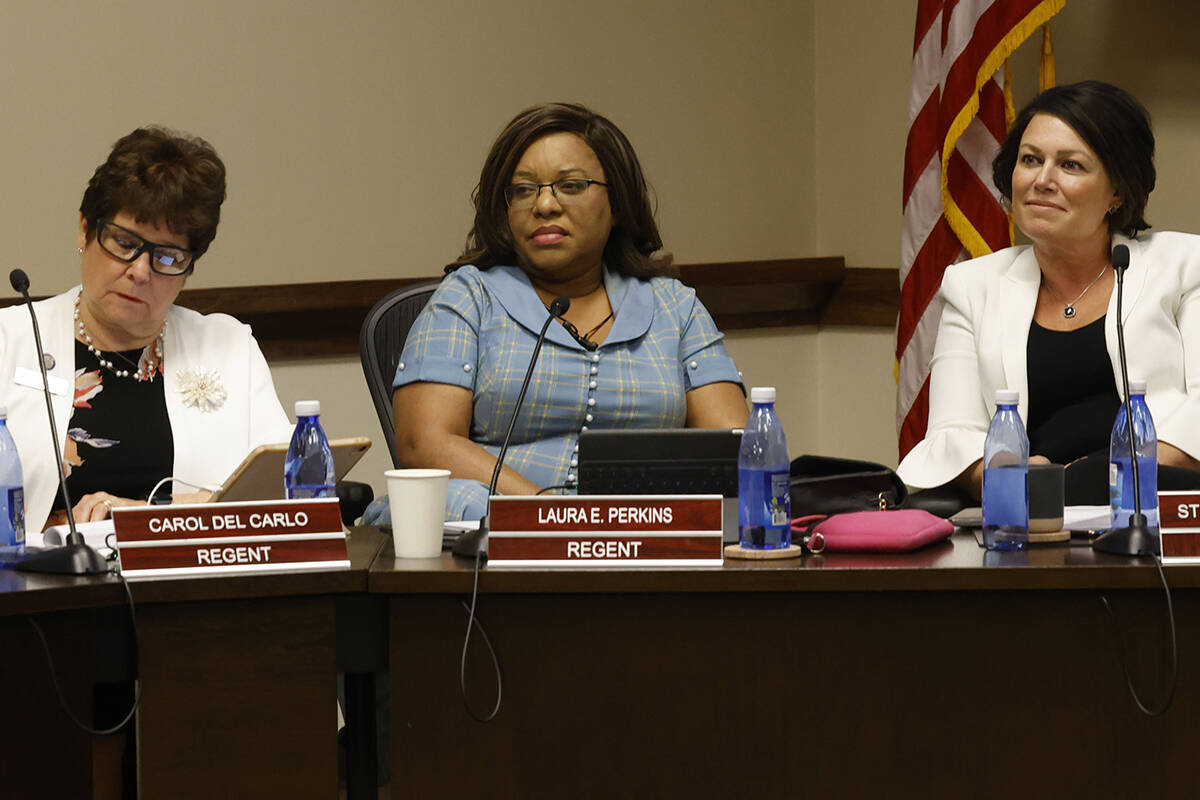College and university employees get 12% raise
Nevada’s public college and university employees are getting a 12 percent raise.
The Nevada System of Higher Education’s Board of Regents voted unanimously on June 30 to set the percentage for the cost-of-living adjustment.
About 7,200 professional employees, including academic and administrative faculty, are affected by the decision, which took effect July 1.
The pay increase is the result of state legislators passing Assembly Bill 522, which also boosted pay for other state workers.
Regent Carol Del Carlo thanked faculty and staff for their work, noting they’re underappreciated and underpaid.
“I just think it’s the right thing to do,” she said about the raise.
Regent Amy Carvalho said faculty have done tremendous things, especially over the last few years during the COVID-19 pandemic.
“It is a rare opportunity for us to be able to reset, at least to a certain level, what we are lacking at NSHE,” she said.
Under the new law, NSHE employees are also slated to receive an additional raise not to exceed 11 percent for fiscal year 2025. But the Board of Regents hasn’t taken action yet on setting the exact amount.
The system administration office noted the fiscal impact is substantial, but considered “the impact on morale,” according to online meeting materials.
Officials also pointed to “more than a decade of stagnant salaries, furloughs, as well as no, or rare and low, salary increases.”
The law states that cost-of-living adjustments for NSHE’s professional employees were “not to exceed” 12 percent, so regents had the authority to set the final amount.
Classified employees — generally, jobs that don’t require certification — automatically received the full 12 percent raise because they’re governed by certain state rules.
State lawmakers appropriated $49.6 million for higher education salary adjustments this fiscal year — about two-thirds of the money needed to fund the increase.
Money from the state is specifically for raises for state-supported positions and NSHE is footing the bill for self-supporting positions,or those with funding sources like fees and program revenues.
Meeting materials include documents from the system’s eight colleges and universities explaining how they’d fund a roughly $30 million shortfall for the raises.
Measures include leaving vacant positions unfilled or cutting positions, if needed in the future, and reducing operating expenses.
UNLV is expected to feel the biggest cost shortfall, at about $13.5 million.
Public comments
Christine Beaudry, an associate professor of education at Nevada State University, urged the board to act.
“Inflation and rising costs of living have rapidly outpaced compensation,” she said.
Many faculty are facing tough decisions about whether they can afford to live in Nevada, Beaudry said.
Even with fully-funded COLA increases, salaries won’t truly grow but will recover to 2021 levels, she said.
Nicole Thomas, a Ph.D student at UNLV and president of the Graduate & Professional Student Association, said students wouldn’t be here without faculty.
The system is losing talented folks, she said, because they can’t make rent or buy a home.
Kinsey Wright, assistant professor of special education at Nevada State University, said she and her spouse have felt the impact of increased expenses on their household budget.
Rent accounts for nearly 30 percent of their take home pay, she said, and every single utility bill, as well as insurance premiums, has increased.
“Financially speaking, we cannot get ahead,” Wright said, “and the dream of homeownership remains just a dream.”
Contact Julie Wootton-Greener at jgreener@reviewjournal.com or 702-387-2921. Follow @julieswootton on Twitter.























